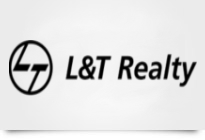The IRDAI has published comprehensive Guidelines on Information and Cyber Security that are a detailed set of directives aimed at enhancing the cyber security posture of the insurance sector in India. These guidelines cover a broad spectrum of areas including governance, risk management, operational controls, and compliance
As a CERT-In Empanelled Security Auditor, Security Brigade can help you address a wide range of these requirements.
Complying with IRDAI Guidelines on Information and Cyber Security
Across our portfolio of Cyber Security Consulting and Compliance Services from Security Brigade and our Award Winning Digital Risk Management Platform, ShadowMap – We can help you comply with a wide number of areas required in the IRDAI Guidelines on Information and Cyber Security
.
Governance and Organizational Framework
Governance and Organizational Framework: It emphasizes establishing robust governance structures, including the formation of various committees and roles like the Information Security Risk Management Committee (ISRMC), Chief Information Security Officer (CISO), and others.
Our expert team of Compliance Experts can help you build, review, audit and certify Governance Frameworks that meet the requirements defined by IRDAI. Learn more about our IRDAI Cyber Security Compliance Service.
Risk Management
The document provides detailed guidelines for managing cyber and information security risks, including risk assessment, treatment processes, and the establishment of risk management frameworks.
Security Brigade’s Cross-Functional Teams of CERT-In Empanelled Security Auditors can help carry out comprehensive Technical Assessments such as: Vulnerability Assessment, Penetration Testing, Web-Application Penetration Testing, Website Security Certification, etc. Furthermore our Compliance Experts can help you prepare the risk management frameworks and treatment processes as part of our IRDAI Cyber Security Compliance Service.
Security Policies and Controls
The guidelines include comprehensive security domain policies covering data classification, asset management, access control, human resource security, and operational security measures.
Our Compliance Experts can help you frame from scratch various information security policies required as part of our IRDAI Cyber Security Compliance Service. Furthermore, these policies and frameworks can often allow you to additionally comply with ISO 27001 and other standards as well without additional effort.
Compliance and Auditing
The guidelines mandate regular audits, compliance checks, and reporting protocols. The roles of internal and external auditors are elaborated upon, along with the process for conducting audits.
Our CERT-In Empanelled Security Auditors can play the role of experienced Third Party External Auditors to help you validate your security controls, processes and benchmark them against IRDAI’s Cyber Security Guidelines.
Incident Management and Response
Detailed procedures for incident management, including detection, response, and recovery processes, are outlined. This includes the establishment of incident response teams and protocols for managing different types of cyber incidents.
Our ShadowMap platform and its Threat Intelligence Module allows you to have real-time visibility on attack trends, industry attack vectors, active threat actors, etc. More over our Vulnerability and Threat platform helps raise alerts for active misconfigurations, vulnerabilities, data leaks, etc that can be leveraged by attackers.
Business Continuity and Disaster Recovery
The guidelines stress the importance of having robust business continuity plans (BCP) and disaster recovery strategies, including regular testing and updates to these plans.
As part of our IRDAI Cyber Security Compliance Service, our teams help you establish Business Continuity and Disaster Recovery process and plans. Furthermore our Technical Assessment teams can help you carry out Comprehensive BCP DR Drills to validate the effectiveness and coverage of your existing practices.
Third-Party and Vendor Management
Specific guidelines are provided for managing third-party risks, including due diligence, contractual requirements, and ongoing monitoring of third-party vendors.
ShadowMap’s comprehensive Vendor Risk Management platform allows you to track all of your vendors in near real time and get accurate Security Risk Scorecards for each of your vendors. These score cards include details about active vulnerabilities, latest data breaches, data leaks, dark web leaks, etc.
Technology and Infrastructure Management
Guidelines for managing IT infrastructure, cloud services, virtualization, and other technological aspects are included to ensure a secure and resilient technological environment.
ShadowMap’s Attack Surface Management platform allows you to maintain a real time asset inventory of all your public infrastructure, SaaS platforms, Cloud Platforms, Hosting Providers, etc. Furthermore our Comprehensive Web-Application Penetration Testing, Network Penetration Testing, Network Vulnerability Assessments, Secure Code Reviews, etc services can help you maintain continuous vigilance of your technology and infrastructure risks.
Employee Awareness and Training:
The document underscores the need for continuous employee awareness and training programs to ensure all personnel are informed and capable of responding to cyber security challenges.
Data Privacy and Protection
Guidelines related to data privacy, including the handling of sensitive personal information and other data-related aspects, are included.
Monitoring and Logging
Detailed guidelines on monitoring, logging, and assessment of security controls are provided to ensure ongoing vigilance and quick response to potential threats.











